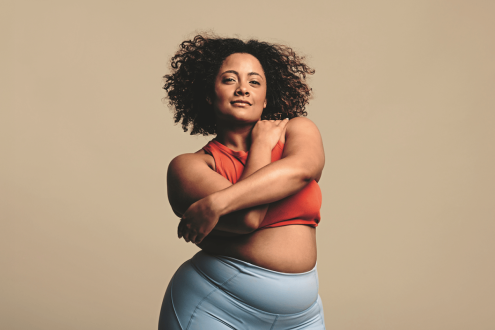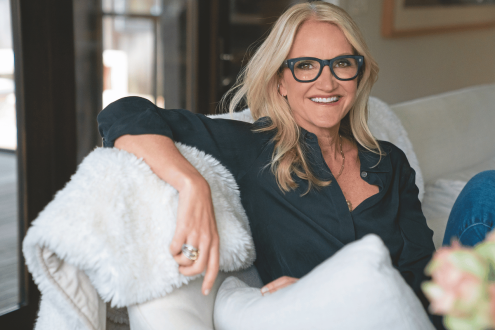Should I marry my boyfriend?
In this guide we help a woman struggling with the question, "Should I marry my boyfriend?" to understand where her doubts come from.

How do you know if you should marry your boyfriend? We all experience moments of doubt in a relationship, particularly when considering a significant step such as marriage. But how do you know when your doubts and anxiety are signs of deeper issues with the relationship? In this guide, our award-winning coach, Kim Morgan, recounts her advice to a woman who felt invisible in her relationship with a selfish partner and struggled with question: “Should I marry my boyfriend?”
“I don’t even know whether I like him, let alone want to be his wife!”
It took a couple of sessions before Lily got to the real reason that she wanted coaching. In the first session, she said: ‘I only want to set some goals and experience coaching. Everything is fine in my life – I just want it to be better.’
I wasn’t convinced but knew that Lily probably needed to feel safe with me before we got to the nub of the issue. Then, right at the end of the second session, she said something that seemed significant. In coaching, we call this the ‘door-handle moment’. This is one of the reasons coaches should never stop listening to and watching their clients, from the very beginning to the very end.
Sometimes, clients blurt out something difficult when it is safe to do so – as they are about to leave. Lily said: ‘I feel as if you see me… I’m not used to that.’ Then she went home.
The next time I saw Lily, I asked her about being seen and when she feels unseen. She squirmed a bit. ‘Well, with my boyfriend… and his big, close family. They are all so confident and have in-jokes and I just feel invisible and insignificant when I am with them. They are so powerful.’
‘What about when you are with your boyfriend on your own?’ I asked. ‘Do you feel seen by him then?’
Lily started to cry. ‘Firstly, he is always with his family. But, no, I don’t really feel seen by him. I think he likes listening to himself and he likes me listening to him!’ There was another door-handle moment. ‘We are due to get married. I can’t imagine what it will be like, but I’ve got to go ahead with it,’ she said. And then she was gone again.
TEST: What do you need for love to flourish?
Honour your feelings
Lily had been doing a lot of thinking since our last session. ‘I’ve never said those things about my boyfriend and his family before but I’ve realised it’s what I really think and feel. I don’t allow myself to acknowledge my own feelings. I think I am being unreasonable and that I should just let people be who they are. I never put myself or my needs first.’
I asked Lily if she identified with any of the following: avoidance of conflict, fear of upsetting people, feeling as if you don’t need anything, not experiencing anger, explaining away other people’s behaviour, feeling guilty, feeling responsible, not knowing what you want, thinking that saying no means not being nice, never giving up or letting people down – to the point of exhaustion.
‘Can you read my mind?’ Lily replied. ‘Every one of those statements is true of me.’
Growing up, Lily’s parents had encouraged her to put others before herself, that anger was bad, and to see the best in everyone.
‘It hasn’t worked out well for me. I’m engaged to someone who doesn’t care about me and I am on the verge of spending the rest of my life with someone I don’t even know if I like!’
Lily stopped and stared at me in shock, then exclaimed: ‘Oh my goodness, I have just said it out loud. I don’t know if I like him and I certainly don’t like his loud, aggressive family!’
Reclaiming self-esteem in a relationship
The final straw for Lily was when she persuaded her boyfriend to attend couples counselling with her. They had to do homework together that involved demonstrating how much they knew about each other, such as the name of their best friend, their favourite flavour of ice cream and where they were born. Lily knew everything about her boyfriend, and he couldn’t answer one question about her.
Lily and I had many more sessions before she eventually left her boyfriend. It took her a lot of work and courage to develop a sense of entitlement and to identify what mattered to her and what she deserved. She learned to set boundaries for herself and to stop over-explaining herself to others.
This work wasn’t just about ending the relationship with her boyfriend, it was about ending the relationship she’d had with herself and starting a new one with self-worth and self-respect.
READ MORE: Self-sabotage: how to stop it and do what’s best for you
When should you not marry someone?
Whether it’s marriage or friendship, the key to happiness is to balance the personalities in your life and find the support you need to thrive. Begin by doing an audit of the people in your life. Is there more of one type of person than any other? What might that say about you, and about your self-respect and self-worth?
List the names of people in your life under each of the headings below. You may find that some people sit under more than one heading. What changes do you need to make to ensure that you have people who give you a healthy mix of support and challenge, and who want the best for you?
Radiators
People who give you comfort, are on
your side and boost your confidence.
Drains
People who sap your confidence.
Role models
People you admire and who have achieved what you want to achieve.
People who can help you
People who have information that may help you achieve your goals.
Think about your network of contacts.
No-nonsense ‘kick in the pants’ people
Those who tell it like it is and give you a push when needed.
People who you help
The ones who look to you for guidance, help, advice or comfort.
Blockers
People who stand in your way and don’t want you to succeed.
In order to grow in confidence and live the life you want, you need to discover your self-worth. The first step in this process is identifying and respecting your needs, and it may mean putting yourself and your needs first, for once!
Buy yourself a journal, which will be a place where you can learn more about yourself. Write this index of chapter headings:
- What are my strengths?
- What do I want in my life?
- What behaviour in others is unacceptable to me?
- What do I need to feel confident, worthy and lovable?
- How could I protect myself?
- If I listen to my feelings, what do they tell me?
- If I listen to my intuition, what does it say?
- What are my dreams and how can I honour them?
- What ‘shortcomings’ can I embrace in myself?
Write in your journal every day. You can dip in and out of the chapter headings, adding more thoughts as they occur to you.
The key to improving self-respect is to treat yourself with the kindness, respect and forgiveness you show to others.









